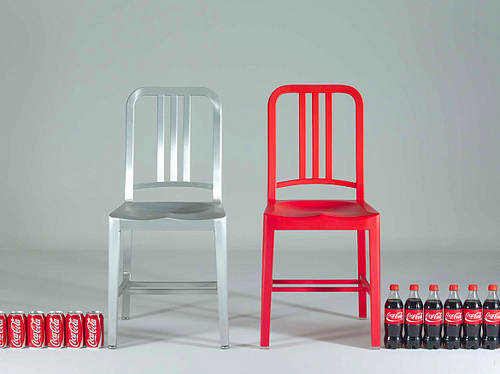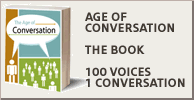
Flash sales sites seem to have what it takes to get recession weary shoppers to open their wallets and part with their cash. This is all about the "deal" and the genius of the sites is to make it easy for consumers to get access to exclusive products and knock down prices. The model works because of the limited-time nature of these offers and the understanding among shoppers that quantity is limited.
Gilt Group seems like an apt name, given that they are really in the business of making luxury shopping a "guilt-free" experience. There are no bags to be seen with, no hard to find sample sales to locate and the massive discounts on well-respected brands can clearly be identified and seen.
in today's retail environment, promotion is the name of the game and retailers aren't getting traffic into the stores with out it. There has to be a major reason for consumers to go into the store in the first place. They've become highly strategic and are masters of sniffing out great deals.
The power of the flash sale is that is forces consumers to make decisions and to buy. The interesting part, one that's currently under-developed, is the gaming aspect. There's a certain competitiveness that's part of the attraction- people don't want to miss out and there are several ways this might manifest itself.
We are certainly at the early stages of the development of the flash sale category,I expect we will soon see these tactics deployed by a host of retailers with their online stores, in addition to the emergence of a whole of host of new players beyond Gilt Group.
Posted by Ed Cotton

On the surface it seems like great PR directed at those worried about those islands of plastic in the Atlantic and Pacific because Coke can point to these products as living proof of its pursuit of the recycling cause. The reality is that the products reuse fraction of the PET that Coke produces in its many product lines worldwide.
What's really needed is something that's beyond a token effort- soft drink and bottled water players need to come together and sort this problem out because it isn't going away anytime soon.
It's likely to get worse and a few chairs aren't going to really change the minds of those who've been alarmed by Chris Jordan's photographs of birds in the Pacific.
Plastic bottles are a big problem and if the players are now finding themselves competing with tap water. So other than using PR spin to slam the quality of local tap water, a dangerous ploy since most of them use tap water for their water, they need to deal with plastic.
How about banding together and creating a market for used PET and using their marketing skills to persuade brands to use it and consumers to buy it? One small part of this effort could be a line of products, like Coke has done, but containing used PET from all the players in the business.
This would be a big shift away from creating a PR spin to benefit a single corporate entity that has very little overall impact to something much bigger in scale that could be a game changer.
Posted by Ed Cotton
The winning prize, a 6 month internship at this Paris studio.
It's clear from the onset that Starck is not interested in the obvious and literal, he's searching for creative leaps and insight. Surprisingly, this appears to be lacking from many of the show's contestants.
Design for Life from design on Vimeo.
Posted by Ed Cotton
Emily is the force behind the Project H initiative, which encourages designers to work for social good and the author of a new book on industrial design.
Posted by Ed Cotton
This environment is tough for those involved in categories like furniture to respond.
However, the Finnish company, Artek had a brilliant response to the current environment delivered by Shigeru Ban.
At the furniture show in Milan, Ban unveiled his 10 unit modular furniture system.
There are three reasons why it's great.
1. It's made from sustainable material- UPM (made from wood and recycled plastic)
2. It's modular and allows the user to build it themselves
3. It's easily to disassemble for transportation
Posted by Ed Cotton
At the recent furniture fair in Milan, Fendi made a step forward in the right direction.
It took over a space, brought in truck loads of scrap material and invited a dozen industrial designers to make objects live.

For the opinion leaders Milan attracts, it was a good way for Fendi to immerse itself in the craft of making and to push against the frivolity of its fashion image.
Expect to see more luxury brands getting to grips with the substance over style story in coming months.
Posted by Ed Cotton
